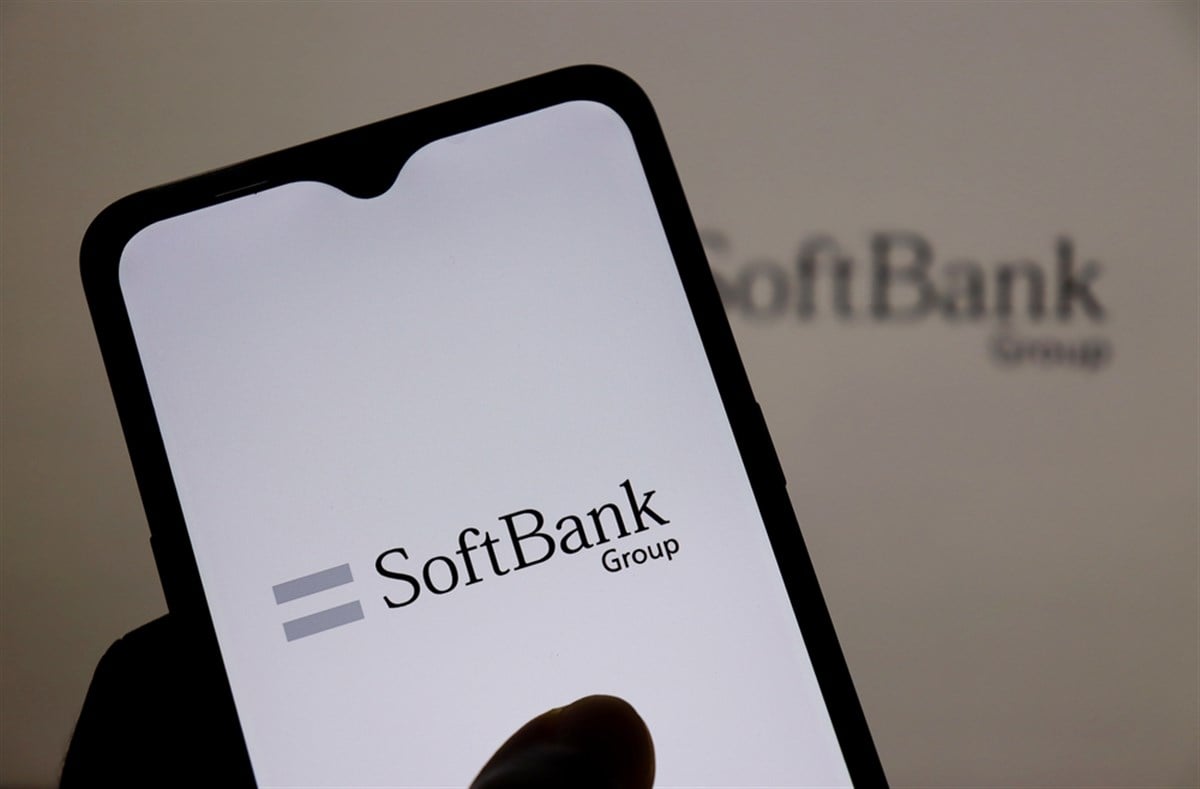SoftBank's billion-dollar bet pays off SoftBank achieves a substantial financial boost from a telecom merger presenting a mixed risk-reward scenario for potential investors.

This story originally appeared on MarketBeat

The Japanese tech conglomerate SoftBank (OTCMKTS: SFTBY), known for its bold investments, received a $7.6 billion windfall this week. This strategic payout, tied to the 2020 acquisition of Sprint by T-Mobile US (NASDAQ: TMUS), strengthens SoftBank's financial position and demonstrates its expertise in completing complex transactions. This influx of capital opens up intriguing possibilities for the company's future, raising questions about how it will use it to advance its ambitious tech initiatives.
SoftBank: Diversification and calculated gambles
SoftBank is more than just a company it is a multifaceted empire. Its investments reach deep into the corners of the tech world, with core business areas including:
- Telecoms: As a major player in Japan and beyond, SoftBank boasts control over mobile carriers like SoftBank Mobile and stakes in giants like T-Mobile US.
- Investments: SoftBank has become a recognizable name in the venture capital realm through its Vision Fund. The company has backed countless startups across multiple technology sectors, from AI and robotics to fintech and proptech (real estate property management technology).
- Technology Assets: From chip design with Arm to e-commerce ventures, SoftBank's portfolio extends into diverse tech arenas, demonstrating its appetite for venturing beyond traditional boundaries.
But SoftBank's journey hasn't been without its volatility. While past successes like the Alibaba (NYSE: BABA) investment stand as glowing tributes to its insight, challenges like the acquisition of Sprint and the WeWork (NYSE: WE) debacle revealed the inherent risks in their high-stakes investment approach.
SoftBank reaps $7.6 billion from T-Mobile merger
SoftBank's recent windfall was due to a meticulously planned strategy it adopted in 2020. That year, the CEO of Softbank, Masayoshi Son, orchestrated the merger of SoftBank-owned Sprint with T-Mobile US. Embedded within the agreement was a clause holding the potential for future prosperity. This clause was a contingency stake in T-Mobile for SoftBank. This stake was contingent upon performance reaching defined parameters.
Fast forward to the present, and those performance thresholds have been recently surpassed. T-Mobile's stock price has soared, causing the price to exceed the stipulated share price triggers outlined in the original agreement. This triggered the automatic issuance of 48.75 million T-Mobile shares to SoftBank, translating to a $7.6 billion stake.
The financial implications of this windfall are significant. For starters, it injects substantial liquidity into SoftBank's balance sheet, bolstering its financial position and providing much-needed breathing room. This provides SoftBank with a potential capital gain. They can choose to hold onto the shares or sell them for immediate cash.
Navigating SoftBank's strategic options
The path ahead presents a spectrum of possibilities. First and foremost, the windfall offers an opportunity to fortify SoftBank's financial foundation. The company’s existing debt is a strain from past acquisitions, and this debt could be meaningfully reduced. Reducing the debt would bolster the company's balance sheet and enhance its creditworthiness. This could lower borrowing costs and unlock access to more favorable financial terms, paving the way for future growth.
The newfound resources could also fuel a new wave of investments. SoftBank's “Moonshot” philosophy remains unchanged, and the company’s appetite for daring investments remains a cornerstone of that philosophy. The windfall could provide the ammunition to venture deeper into promising sectors like artificial intelligence, robotics, or renewable energy, solidifying its position as a tech pioneer.
Another intriguing option could be share buybacks. Repurchasing its shares would directly reward shareholders, boosting their stake in the company's future success and increasing the stock price. By reducing the number of outstanding shares, a buyback plan would also increase the earnings per share (EPS), potentially making the stock more attractive to investors and propelling the price upwards. However, this approach can be controversial, raising concerns about short-term financial gains versus long-term growth initiatives.
Navigating the SoftBank surge
SoftBank's $7.6 billion windfall has naturally piqued investors' interest. But before investing in Softbank, you should familiarize yourself with the risks. While the windfall might paint a rosy picture, SoftBank remains a high-risk, high-reward proposition. While potentially lucrative, its history of audacious bets can also lead to significant losses, as witnessed in the WeWork saga.
Investors with a stomach for risk and a long-term perspective can consider SoftBank as a strategic addition to their portfolio. The windfall strengthens the company's financial position, offering a buffer against potential downturns. Moreover, SoftBank's focus on cutting-edge technologies like AI and robotics positions them to benefit from future industry growth.
Alternative strategies and comparable companies
SoftBank's windfall has created a stir, but it is essential to remember that it is just one chapter in the company's ongoing story. Investors should prioritize due diligence, understand the inherent risks, and consider alternative options before making a SoftBank investment.
Investing in broader technology sector ETFs or established tech giants like Microsoft (NASDAQ: MSFT) or Apple (NASDAQ: AAPL) may offer lower risk profiles with more predictable returns for those looking for alternatives. Companies like Alibaba, with a longer track record and similar exposure to Asian markets, could also be worth considering. Ultimately, the decision depends on your risk tolerance, investment goals, and market outlook.











